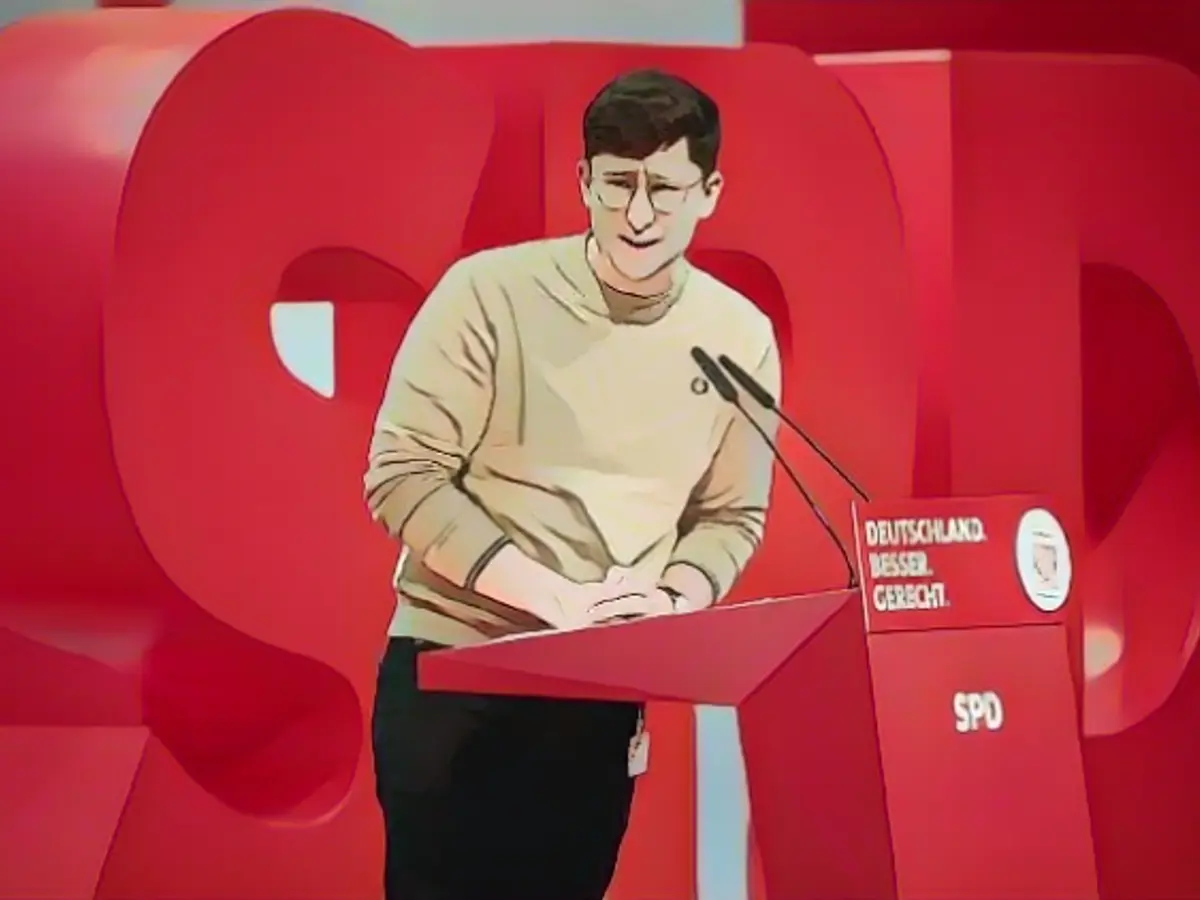SPD wants the super-rich to get their hands on assets
A surprising turnaround at the SPD's national party conference: the Jusos have pushed through far-reaching changes to the main motion on the political plans for the coming years on two points. This concerns the reform of the debt brake and - even more importantly - the taxation of large fortunes.
On the first day of the SPD's national party conference, the party's youth organization, the Jusos, provided two major surprises. Both the plans for a reform of the debt brake and the greater involvement of rich people in the financing of state tasks were amended in the afternoon in the lead motion entitled "Together for a strong Germany". While the party executive agreed on a compromise formula for dealing with the debt brake, it was unexpectedly and clearly outvoted on the issue of dealing with large fortunes. The party now wants "those with the highest wealth in our country to pay an additional one-off wealth levy", according to the motion passed.
The party executive had proposed a "temporary crisis levy" that would be paid by income taxpayers subject to wealth tax. This would have been based on the principle of the solidarity surcharge to finance the costs of reunification, which only the top ten percent of incomes still pay anyway. According to this model, top earners should pay a kind of "future solidarity tax" in future. This would affect people with a taxable income of at least 277,826 euros. Advantage of the original concept: The procedure is tried and tested and is based on a comparatively simple assessment basis. Disadvantage: Only income is recorded, not the possessions and their appreciation of the super-rich. But this is exactly what the Jusos want to target.
However, it is not clear from the proposal how assets should be assessed in future and at what lower limit this levy would have to be paid in an undisclosed amount. In the current governing coalition with the FDP, implementation is not conceivable anyway. The main motion is essentially intended to set out the SPD's goals and ideas, which it would like to implement if it has the necessary majority. Nevertheless, the vote marks a defeat for the party executive led by the recently re-elected chairmen Lars Klingbeil and Saskia Esken as well as General Secretary Kevin Kühnert.
"Good-bye, debt brake"
The SPD leadership also feared defeat in another area: in the Jusos' demand not only to reform the debt brake, but to abolish it altogether. As the mood in the chamber indicated a majority in favor of the Juso proposal, both sides agreed on a compromise formula. The lead motion now states: "We reject rigid limits on borrowing by the federal and state governments, as we currently find them in the constitutions. They prevent investment and impair the state's ability to act." In the view of the Jusos, a reform of the debt brake would therefore no longer be limited to opening up for investments. Debt for consumptive government spending should also be allowed.
"Good-bye, debt brake," commented the newly elected Juso chairman Philipp Türmer on the result. "Today, the SPD decided by a large majority at its federal party conference to reject the debt brake as a rigid debt limit." With a debt brake amended in this way, the state would be able to act "in all areas" of the state, not just in investments. "This resolution paves the way at federal and state level to finally get rid of the debt brakes for a successful socio-ecological transformation and a strengthening of social cohesion."
It is unclear whether the party executive also interprets the resolution accordingly. It is "important that we show that the hard-earned tax money (...) is being used sensibly", said Manuela Schwesig, Minister President of Mecklenburg-Western Pomerania. Federal Chancellor Olaf Scholz is also generally considered to be a supporter of a debt rule that puts a stop to unbridled national debt. With the FDP in government, such a far-reaching change is not feasible anyway. In addition, for a majority to amend the constitution, the traffic light coalition would need the approval of the CDU/CSU, which has so far also rejected a reform of the debt brake.
One million new jobs, lower taxes for 95%
The key proposal "Together for a strong Germany" focuses on a large-scale modernization programme for Germany. The SPD wants to create one million new jobs by 2030 by converting to a climate-neutral economy. By then, an additional 100 billion euros are to be invested annually in "infrastructure, education, digitalization and the climate-neutral transformation of our economy" as part of a "Germany Fund".

A large proportion of the investment is to come from the private sector. The "Deutschlandfonds" aims to reduce bureaucratic hurdles for public and private investors. "Every euro that flows into the modernization of the country is a euro in our future prosperity, in future jobs and good wages for people in Germany," states an SPD paper on the main motion.
The SPD also wants to reform income tax. The aim is for "95% of taxpayers to have more money in their pockets". The Social Democrats also want to tackle inheritance and gift tax. Multi-millionaires and billionaires should "contribute more to financing the common good". All of the additional revenue should flow into education. At the same time, the SPD wants to increase the tax-free amounts.
Read also:
- Year of climate records: extreme is the new normal
- Precautionary arrests show Islamist terror threat
- SPD rules out budget resolution before the end of the year
- Numerous oil, gas and coal lobbyists at climate conference
- The Jusos, the youth wing of the SPD, successfully amended the party's main motion at the national conference, proposing a one-off wealth levy on the super-rich to finance state tasks.
- In their budgetary policy plans, the SPD also advocates for reforming the taxation of large fortunes, with a particular focus on inheritance tax, aiming to make multi-millionaires and billionaires contribute more to the common good.
- During the party conference, the SPD discussed their tax policy, with a goal to increase the tax-free thresholds while ensuring that 95% of taxpayers would benefit from having more money in their pockets.
Source: www.ntv.de








